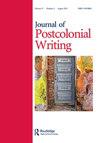关于联系和谎言:奥因坎·布雷斯韦特的《我的姐姐是连环杀手》(2018)中的道德混乱
IF 0.4
3区 文学
0 LITERATURE
引用次数: 0
摘要
摘要在尼日利亚当代文学的版图中,奥因坎·布雷斯韦特的处女作《我的妹妹,连环杀手》(2018)以其黑色幽默、道德诽谤、对父权暴力的谴责和不可靠的叙事的融合而脱颖而出。读者一定会同情两个犯罪姐妹,尽管她们所处的处境显然很棘手:令人震惊的阿尤拉无意中杀死了她的男朋友,并与她的妹妹Korede纵容,Korede是一名有效处理尸体的护士。这篇文章将重新审视熵幽默和喜剧距离的一些考虑,以展示为什么姐妹俩被赋予了救赎的机会。此外,它将主要从以非洲为中心的角度来研究家庭创伤的影响,以及可能的虚构的对父权叙事的遗忘。最后,它将关注叙述者的不可靠性,以强调小说分层情节中额外的讽刺暗流。本文章由计算机程序翻译,如有差异,请以英文原文为准。
Of ties and lies: Ethical disruptions in Oyinkan Braithwaite’s My Sister the Serial Killer (2018)
ABSTRACT Within the landscape of contemporary Nigerian literature, the debut novel of Oyinkan Braithwaite, My Sister, the Serial Killer (2018), stands out for its blend of black humour, ethical aspersions, denouncement of patriarchal violence, and unreliable narration. Readers are bound to sympathize with two criminal sisters, despite the decidedly thorny situation they are immersed in: stunning Ayoola inadvertently kills her boyfriends and connives with her sister Korede, a nurse who effectively disposes of the corpses. This article will revisit some considerations of entropic humour and comic distance with a view to demonstrating why the sisters are granted a redeeming opportunity. Additionally, it will examine the effects of domestic trauma – mainly from an African-centred perspective – and a possible fictional unlearning of patriarchal narratives. Finally it will focus on the role of the narrator’s unreliability in order to underscore the additional ironical undercurrents of the novel’s layered plot.
求助全文
通过发布文献求助,成功后即可免费获取论文全文。
去求助
来源期刊

Journal of Postcolonial Writing
LITERATURE-
CiteScore
0.80
自引率
0.00%
发文量
73
期刊介绍:
The Journal of Postcolonial Writing is an academic journal devoted to the study of literary and cultural texts produced in various postcolonial locations around the world. It explores the interface between postcolonial writing, postcolonial and related critical theories, and the economic, political and cultural forces that shape contemporary global developments. In addition to criticism focused on literary fiction, drama and poetry, we publish theoretically-informed articles on a variety of genres and media, including film, performance and other cultural practices, which address issues of relevance to postcolonial studies. In particular we seek to promote diasporic voices, as well as creative and critical texts from various national or global margins.
 求助内容:
求助内容: 应助结果提醒方式:
应助结果提醒方式:


